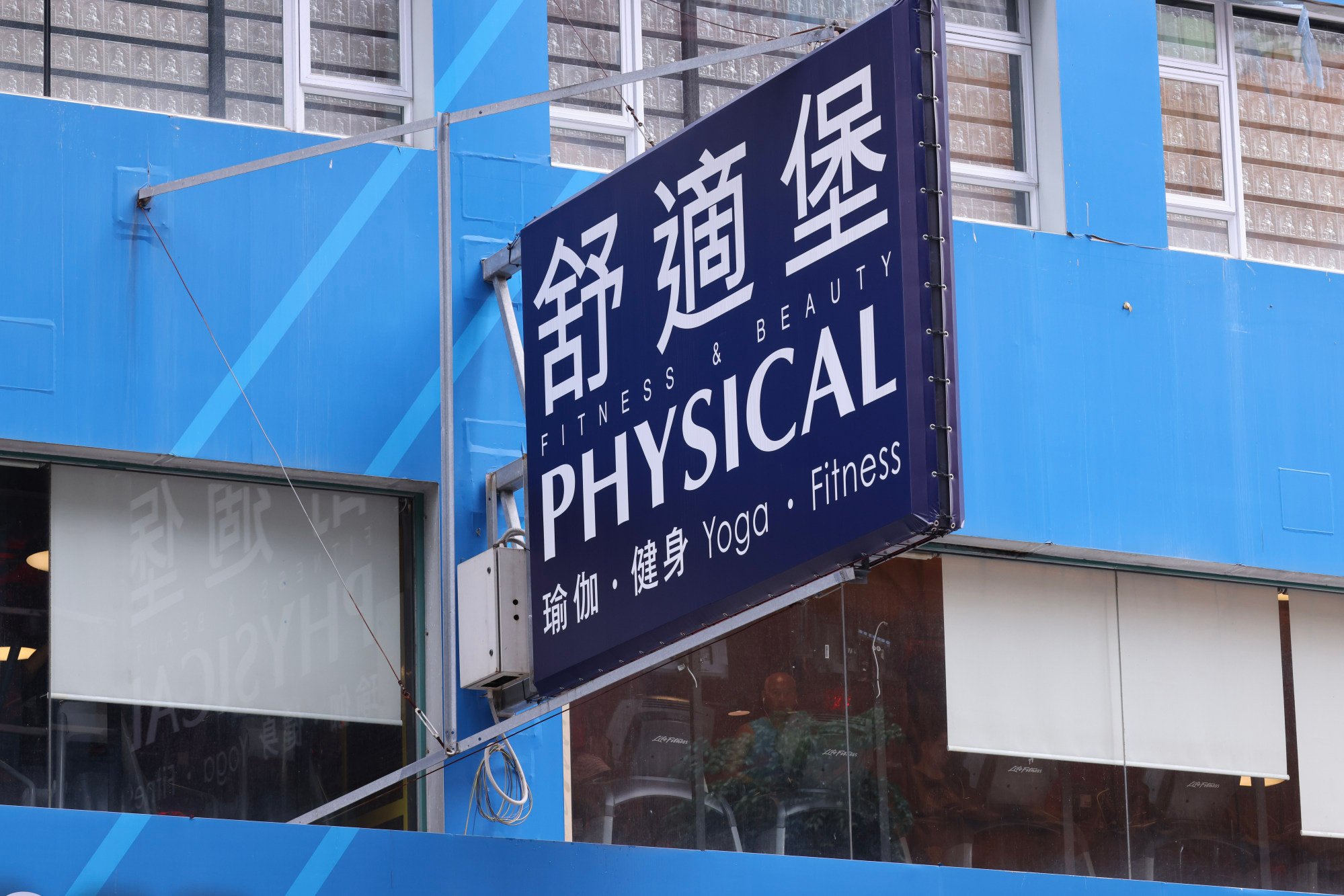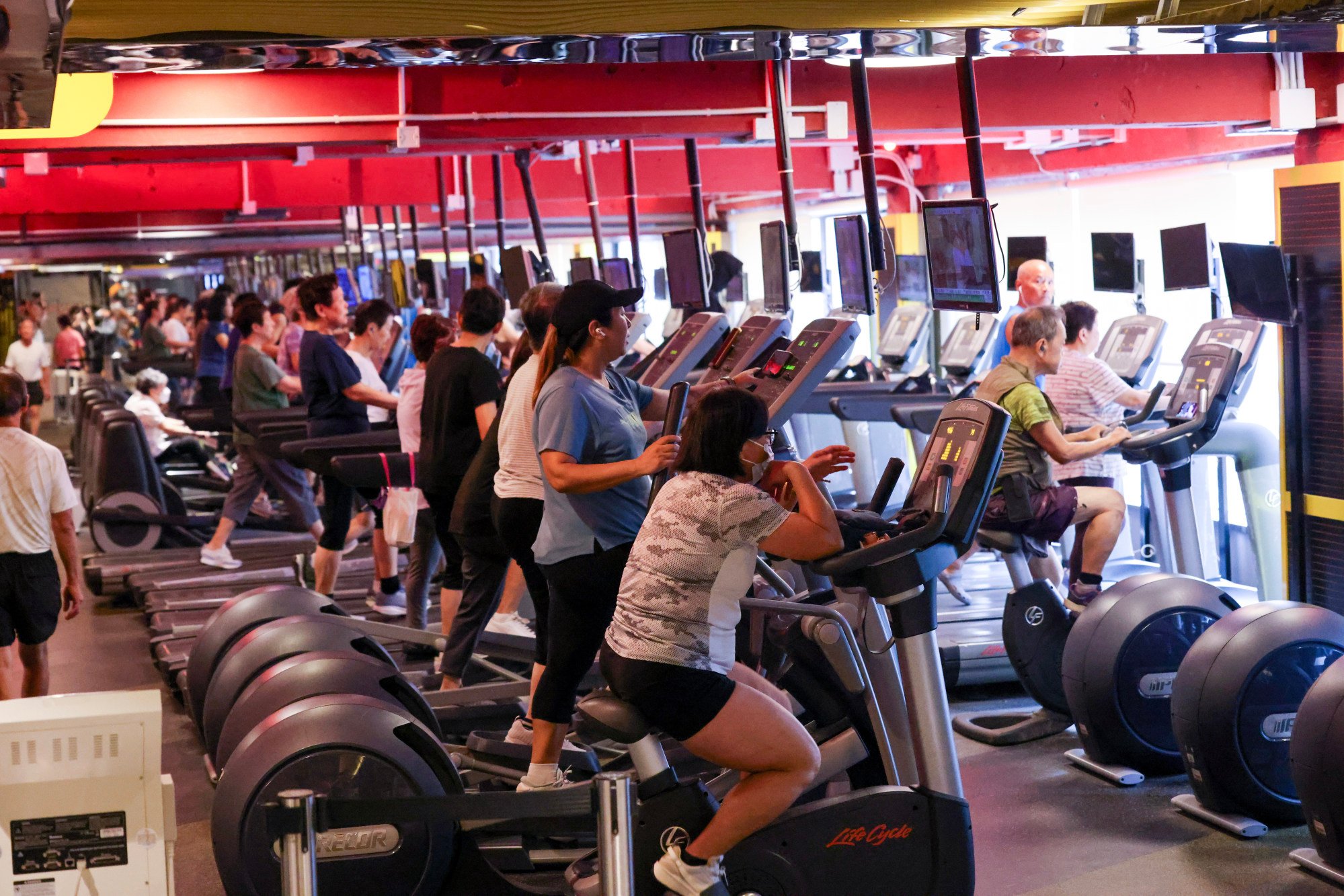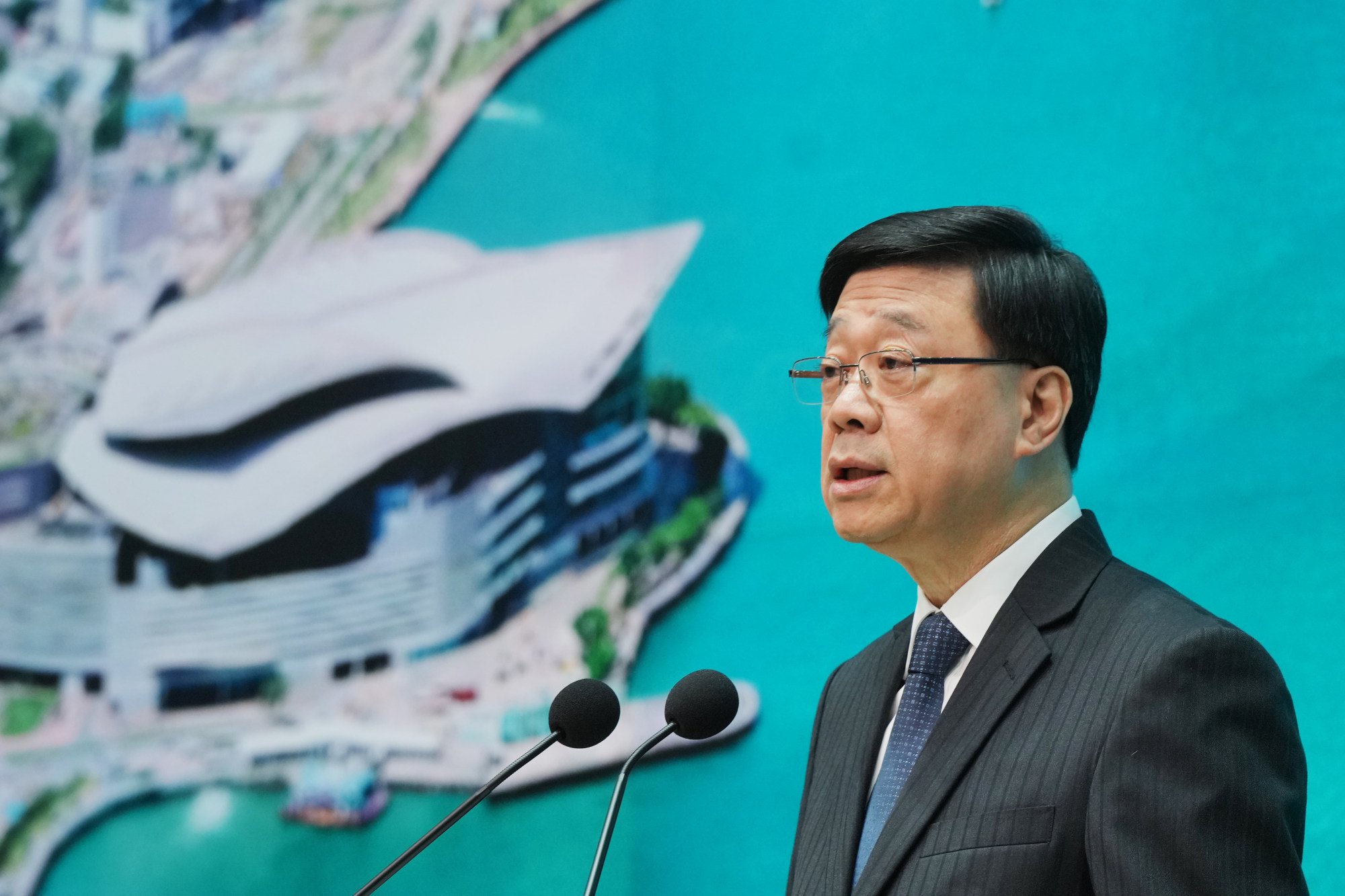Hong Kong retiree May Leung was a loyal customer of the Physical chain of fitness and beauty centres for nearly 20 years, going at least three times a month for wellness classes, facials and regular massages.
The 60-year-old paid the company HK$400,000 (US$51,416) in advance, though she was not sure what services that covered, or how many months or years it would have taken to run out.
Then, in September, the chain announced it was closing after 38 years, leaving a pile of unpaid debts and numerous customers who said they had paid in advance for various services.
Do you have questions about the biggest topics and trends from around the world? Get the answers with SCMP Knowledge, our new platform of curated content with explainers, FAQs, analyses and infographics brought to you by our award-winning team.
By early October, the Consumer Council had received more than 5,000 complaints related to the closure, involving close to HK$200 million. Customs and police received 752 more complaints relating to the Physical chain as of early September.
Like Leung, some customers had prepaid large sums for services they intended to use over years to come. The largest sum in a single complaint was about HK$2 million.
Leung told the Post she did not expect to get her money back. She regretted falling for what she described as aggressive sales tactics by the chain’s staff who pressured customers to buy prepaid packages.
Even before contracts ran out, she said, the staff would persuade customers to sign on for more services, dangling a 10 per cent discount or giveaways, without giving people time to think through their decisions.
She recalled being approached usually after a massage at night, when she was tired and unable to think clearly, before signing up and paying.
She wished authorities would impose a mandatory cooling-off period of seven to 14 days.
“This could give customers a chance to reconsider their purchasing decisions,” she said
The scandal prompted politicians and experts to say Hong Kong should learn from other countries to regulate the sale of prepaid services and improve laws to protect consumers better.
As complaints kept coming in, Chief Executive John Lee Ka-chiu said in mid-September that the government would consider introducing a cooling-off period for prepaid contracts.

No way out for those who prepay
The fallout put the spotlight on selling tactics not only at Physical, but also in the rest of Hong Kong’s fitness and beauty sector.
The complaints were not new. The government allocated funds years ago for the Consumer Council to look into introducing a statutory cooling-off period.
The council submitted its report in 2018 and the government held a three-month public consultation in 2019 focused on beauty salons and gyms.
The study showed there had been 1,964 complaints related to beauty services and 1,590 related to fitness services, involving a total of almost HK$123 million between 2013 and 2017.
In many cases, customers prepaid large sums for services they would use over a long period. The complainants also described succumbing to aggressive sales tactics.
The council recommended a mandatory cooling-off period, saying it would allow people to change their minds and cancel contracts if they felt they had been pressured into signing up and paying.
It proposed having a cooling-off provision for contracts of less than six months or those that required prepayment, with exceptions for one-time fitness or beauty services costing below HK$500.
To cancel a contract, it suggested that customers submit a written request to the merchant within a refund period of 14 days.
Political parties supported the move, with some hoping the government would extend it to cover other sectors and consumer activity, including online purchases.
The beauty industry opposed the cooling-off proposal, saying it was not the solution to high-pressure sales tactics.
Then came the Covid-19 pandemic and the economic downturn, and those proposals were put on the back burner. Nothing further was done.
Even earlier, the council had worked with representatives from the beauty sector to develop a self-regulated Beauty Industry Code of Practice.
Issued in June 2006, it encouraged beauty service providers to offer a cooling-off period voluntarily. There is no available data on the extent to which the industry implemented the code.
The fitness sector had no such code of practice.
Hong Kong has no law compelling traders to offer customers a cooling-off period.
However, in 2018 the government announced that the Voluntary Health Insurance Scheme would have a 21-day cooling-off period.
The following year, the Hong Kong Federation of Insurers introduced a cooling-off period for life insurance policies, allowing people to cancel within 21 days of signing up for a policy.

‘I feel deceived by gym trainers’
Accountant David Fu*, in his 30s, said it was about time Hong Kong got tough to prevent more customers from losing their money.
He joined Physical in 2021 with some friends and at first, went for personal fitness classes once or twice a week.
Over time, he recalled, the trainers could be quite manipulative as they pressured customers to take up long-term contracts and pay in advance.
“They would say things like, please help, the boss asked us to get more people to sign on,” he said, adding that they were still doing this not long before Physical shut down.
Fu said he was now stuck with about HK$280,000 worth of unused gym classes which would have lasted him “several years”.
He had signed up and paid after the gym trainers told him he would be “helping them”.
Fu said he hoped the government would implement a mandatory cooling-off period and establish a designated office within a bureau to oversee matters relating to it.
Looking back, he said: “I feel I was deceived by the staff.”
Need to restore consumers’ confidence
Gordon Yau Yick-chung, chairman of the Hong Kong Fitness Guide, who was consulted for the Consumer Council’s earlier report, told the Post that most fitness centres now supported having a mandatory cooling-off period.
He said there were about 1,355 physical fitness centres in the city, including 24-hour one, and estimated that “only about 1 per cent” used hard-sell tactics.
He felt it was important to address the issue because bad practices could damage the industry’s reputation.
Companies that conducted their business ethically should not have anything to worry about if a cooling-off period was introduced, he said.
He suggested imposing an administrative charge of 3 to 10 per cent on customers who chose to cancel their contracts, saying this was reasonable to cover the centres’ manpower costs.
Nelson Ip Sai-hung, founding chairman of the Federation of Beauty Industry (HK), said attitudes varied across the sector on introducing a mandatory cooling-off period.
He preferred the government to let the industry adopt the cooling-off period voluntarily rather than make it compulsory.
“Companies should have freedom to choose the way to run the business,” he said, adding that it was important to balance the needs of both parties.
Related issues, including the process for cancelling contracts, should also be clear and straightforward as consumers often found such things hard to grasp.
“The key points should be simple and easy to understand,” he said.
Items such as handling fees, refund timelines and specific conditions should be spelled out, preferably with no more than 10 clauses.
Ip thought it was too early to discuss prepayments, but hoped that having a cooling-off period would be a first step forward.
Lawmaker Bill Tang Ka-piu supported making the cooling-off period mandatory and doing so as soon as possible, adding that business owners who provided quality services had nothing to worry about.
“This could help restore Hongkongers’ confidence in the reputation of merchants,” he added.
He suggested that the length of the cooling-off period should be proportional to the amount customers spent, with seven days as the minimum.
“The larger the amount, the longer the cooling-off period should be,” he said.
On prepayments, he felt strongly the government should step in.
“I suggest that three years should be the maximum for prepaid contracts,” he stated.
He said he hoped authorities would submit a proposal to the Legislative Council by next year.

‘SMEs are facing hard times’
Concerned about rushing things, retail sector lawmaker Peter Shiu Ka-fai said there still was room to discuss the matter, especially as Hong Kong’s small and medium-sized enterprises were facing difficult times.
It was important to balance the rights of consumers with those of entrepreneurs, he added.
He said the beauty industry opposed having a mandatory cooling-off period as many were afraid their cash flow would be hit if customers changed their minds frequently.
Unlike large companies offering financial products, he said, smaller businesses in other sectors might not have the same financial stability to afford offering a cooling-off period.
A “reasonable” administrative charge should be imposed on those seeking a refund during the cooling-off period.
On prepayments, Shiu agreed it was excessive to sell products that would be delivered over as long as 10 years.
“Selling beauty services valid for 10 years is unreasonable,” he said.
Associate law professor Kelvin Kwok Hiu-fai, of the University of Hong Kong, said he would strongly support the prompt implementation of a mandatory cooling-off period for beauty and fitness service contracts.
He felt a cooling-off period of seven to 14 days would be reasonable.
He said that if fitness centres continued to sign on consumers before closing down, they could potentially face charges of “wrongly accepting payment” under the Trade Descriptions Ordinance.
He said there should be more vigorous criminal prosecution under the law to deter unscrupulous business practices.
Richard Keady, vice-chairman of the civil litigation committee of the Law Society of Hong Kong, pointed out a distinction between the financial sector and businesses involved in fitness and beauty.
While the financial sector had been regulated by a cooling-off period for some time, applying one to other businesses was different.
If a business shut down suddenly, he said, individual customers would have limited recourse even if it happened during the cooling-off period of their contracts, as they would not be the first priority to get their money back.
‘Look at other options too’
For now, consumers will have to look out for themselves and decide whether to part with their money.
At the Mong Kok centre of a fitness chain, a Post reporter posing as a potential customer was shown around the premises by a staff member.
The employee gave an assurance that none of its trainers would persuade customers to buy sessions unless asked.
When the reporter showed interest in becoming a member, she was offered a free session with a personal trainer if she signed up there and then.
For about HK$1,300 per month, there would be unlimited sessions excluding yoga classes. The price varied at the chain’s different locations.
But when asked if the centre had a cooling-off period for customers who changed their minds, the answer was a firm no.
The Consumer Council said reopening the discussion on a mandatory cooling-off period needed a thorough review of Hong Kong’s current economic and social landscape.
“This would involve consultation with industry and other stakeholders to assess the implications and operational arrangements, while carefully studying and taking into account the diverse opinions within the industry,” it said.
Other measures could be considered too, it added, including targeted action for sectors where transaction amounts were significant.
“The council believes that measures such as restricting contract durations or setting a maximum prepayment amount are worth considering,” it said.
A spokesman for the Commerce and Economic Development Bureau said in September that it had noted unfair trade practices for prepaid services, particularly by fitness centres and beauty parlours using aggressive sales tactics.
While the bureau would examine the pros and cons of various proposals, it would also consider the economic environment and the situation of the relevant industries.
* Name changed at interviewee’s request
More from South China Morning Post:
- Hong Kong’s Physical fitness chain shuts after 38 years, blaming high rents
- Hong Kong’s Physical fitness chain members warned over ‘consent forms’ at reopened gym
- From ‘Healthy’ to ‘Perfit’: former Physical fitness outlet in Hong Kong renamed again
- Hong Kong’s Perfit gym reopens another branch previously run by scandal-hit Physical
For the latest news from the South China Morning Post download our mobile app. Copyright 2024.





